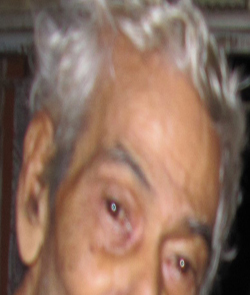
It is devastating for parents to watch their adult children getting into regular addiction. As parents of an addicted person, they have cared for and raised their children to their best ability, and it is incredibly difficult for them to see their children going down the spiral because of addiction. When a child is young, they are under the supervision and control of their parents. When they grow up as an adult, parents don't have that control, but they still have parental worries and a sense of responsibility for them. Just imagine, if one's child suffers from any other medical diseases, they don't hesitate to do extensive research for them and look for help. However, when one's child suffers from addiction, a parent feels a lot of shame and stigma about it. Hence, rather than seeking help, parents end up in pushing their children away.
No parent is perfect. No one can change their past. All one can do is move forward and find out a solution to their current problem. As an adult child, one has all the capacity to make decisions. But they have no right to blame their parents.
Parents are generally aggrieved after knowing about their child's addiction problems. Parents often benefit from a practical solution to their problems more than from just emotional pleas. It is crucial to separate one's child from addiction. One's child needs love and support, but addiction needs a strong sense of disapproval.
One key aspect that separates addiction from many other chronic debilitating diseases is that people struggling with addiction often display certain patterns of behaviour, thoughts, and attitudes. Denial, lying, and manipulation are quite common in addiction, which unconsciously helps them to sustain their addictive behaviour.
Parents of addicts often fall into the trap of overprotecting their children, hoping that they will change their behaviour. As a result, unfortunately, parents end up enabling their addict children's behaviour, and their children can't learn from their mistakes, and their behaviour indirectly gets further reinforced. Therefore, the addiction monster grows bigger in their children.
Research suggests that if parents take an attitude of tough love, where they show love to their addicted children but refuse to help their addiction, that often helps bring up insights in their children. Parents haven't caused the problem. Hence, they can't fix it. Rather, parents should take themselves off the hook and be assertive and realistic about the addictive behaviour of their children.
Nasha Mitra parental intervention entails the following principles:
1. Support respect and participation
2. Active listening and collaborative problem solving
3. Accepting that addiction treatment may require multiple attempts before total abstinence
4. Encouraging parents to continue working with the patient, accepting their failure as understandable
5. Emphasizing that criticism in the family environment often leads to relapse
6. Perseverance and ongoing support by family members until the goal is achieved
7. Teaching how to set limits on certain unacceptable behaviours of their addict family member
8. Education in the use of a peer support group for negotiation during imminent relapse rather than playing the blame game
9. Emphasis on not catastrophising slip-ups because this is a part of the recovery process
10.Education in the use of a peer support crisis team if conflict escalates at home, and a relapse occurs



